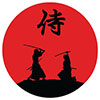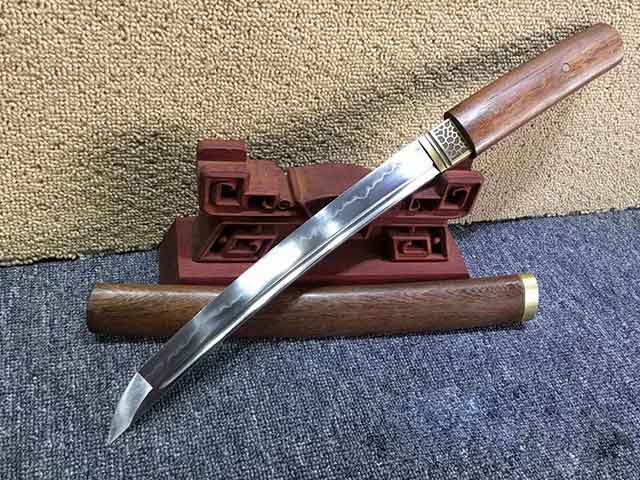
The Tanto knife is a traditional Japanese dagger that was once an integral part of the samurai warrior’s arsenal. It is known for its unique shape and cutting ability, and it is still revered by many martial artists and knife enthusiasts today.
How the Tanto Knife Appeared
The origins of the Tanto knife can be traced back to the Heian period of Japan (794-1185). It was during this time that the first Tanto knives were crafted and used as a weapon of war. The Tanto was originally designed as a short sword, but over time, its blade length was shortened and its shape evolved into what we know as the Tanto knife today.
Characteristics and Features of the Tanto Knife
The Tanto knife is a unique weapon, characterized by its straight blade with a flat grind and a triangular point. The blade is typically between 6 and 12 inches long and is often made from high-carbon steel. The blade is usually thick and strong, which makes it ideal for stabbing and thrusting.
The handle of the Tanto knife is typically short and made from a variety of materials, including wood, bone, or ivory. The handle is often wrapped in silk or leather for added grip.
The Tanto knife also features a unique hamon, or temper line, which is created during the forging process. This hamon is a wavy line that runs along the blade, and it is a sign of the Tanto knife's high-quality craftsmanship.
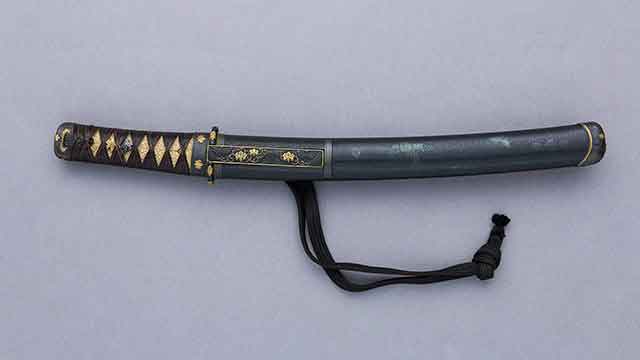
How the Tanto Knife Was Used
The Tanto knife was primarily used as a weapon of war by the samurai warrior class. It was often used in close combat situations, where its short length and sharp point made it ideal for stabbing and thrusting. The Tanto knife was also used for ceremonial purposes, as it was often presented as a gift to samurai warriors or used as a symbol of honor and loyalty.
Today, the Tanto knife is still popular among martial artists and knife enthusiasts. It is often used in self-defense situations, as its compact size and sharp point make it a formidable weapon in close quarters combat.
In conclusion, the Tanto knife is a legendary weapon with a rich history and unique design. Its straight blade, triangular point, and distinctive hamon make it an iconic symbol of Japanese culture and martial arts. Whether used for self-defense or as a symbol of honor and loyalty, the Tanto knife remains an important part of Japan's cultural heritage.
See also
-
Sojutsu - The Art of the Spear
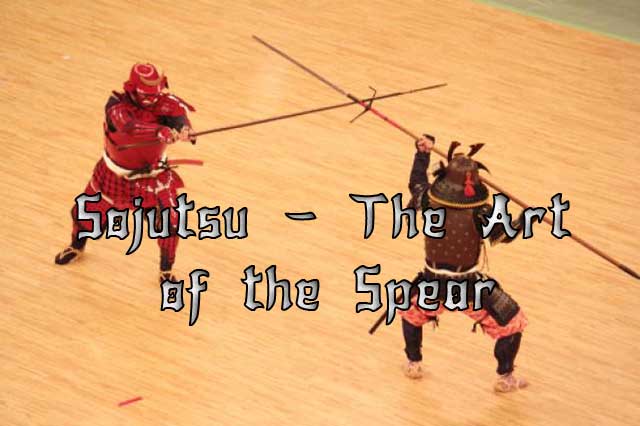
Sojutsu is a traditional Japanese martial art dedicated to the mastery of the yari spear. It is considered the second most important martial art of medieval Japan after swordsmanship.
-
Yari
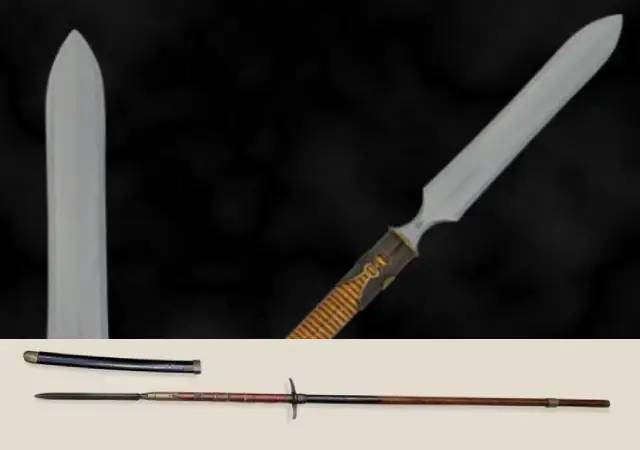
Yari is one of the traditional Japanese cold weapons (nihonto), which is a spear with a straight tip. The art of wielding a yari is known as sojutsu, a spear fighting technique.
-
Wakizashi and tanto

In the history of Japanese edged weapons there are objects that border between the concepts of “sword” and “knife”. This is especially true of the wakizashi, a short sword traditionally carried by samurai along with the katana, and the tanto, a combat knife popular among a wide range of social classes. Both items were worn behind the belt, had a short blade, and were used in close combat. However, there is a fundamental difference between the two, and it goes far beyond simple blade length.
-
Katana and Tachi
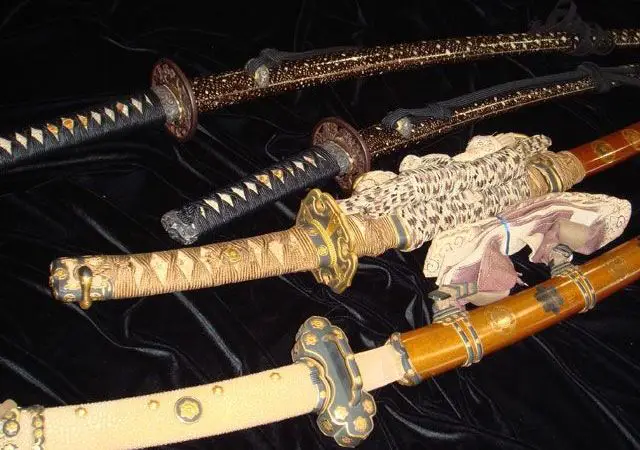
When Westerners think of Japanese swords, they often picture the iconic curved blades like the katana. However, in terms of historical precedence and prestige, it would be more accurate to reverse this image—the tachi predates the katana and traditionally held a higher status.
-
Daisho: The Origins and Evolution of the Samurai Sword Pair
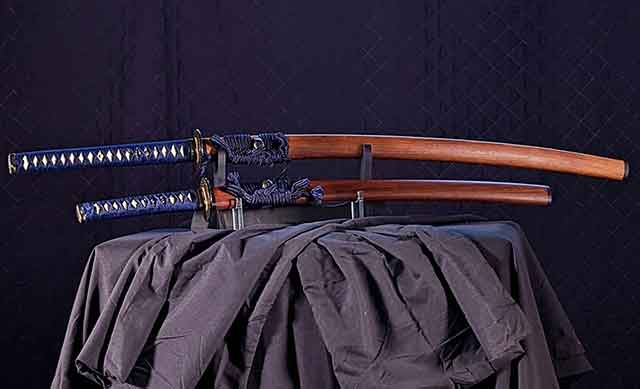
The term "daisho" finds its roots in the combination of two Japanese words: "daito," denoting a long sword, and "shoto," signifying a short sword. The combination of the words daito and shoto made the word. Daisho referred to the practice of wearing both a long and short katana together, regardless of their matching characteristics. While the classic depiction of daisho involves a katana and wakizashi (or tanto) in matching koshirae, any pairing of a longer sword with a tanto can also be considered a daisho. It later came to mean two swords with coordinated fittings. While having blades from the same swordsmith was an option, it was not a requirement for a pair to be classified as a daisho, as this would have been a more costly choice for a samurai.
-
Tachi
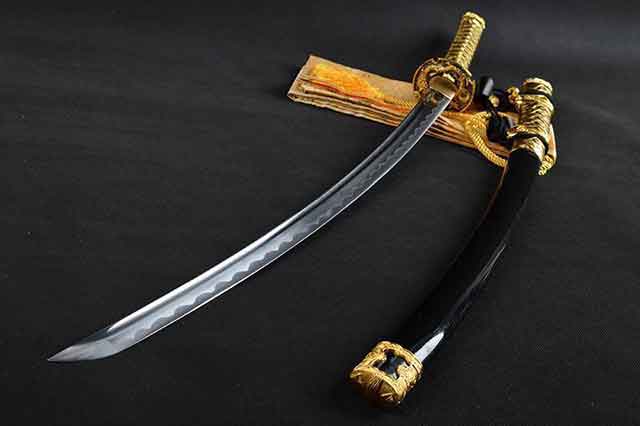
The samurai sword known as Tachi is one of the most iconic weapons in Japanese history. Its unique design and construction made it a popular choice among samurai warriors, and it played a significant role in many battles throughout Japan's history.
-
Nagitana
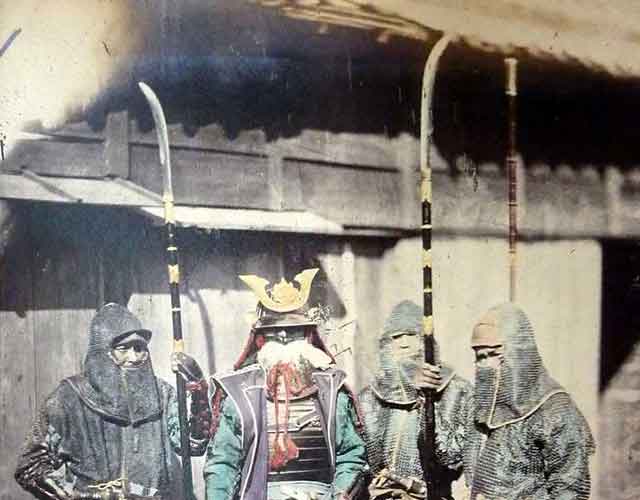
The Nagitana is a formidable weapon that was used by the samurai during feudal Japan. It was a polearm that combined the elements of a spear and a sword, making it a versatile weapon that was effective both at long range and in close combat. In this article, we will explore the history, construction, characteristics, and usage of the Nagitana.
-
Wakizashi
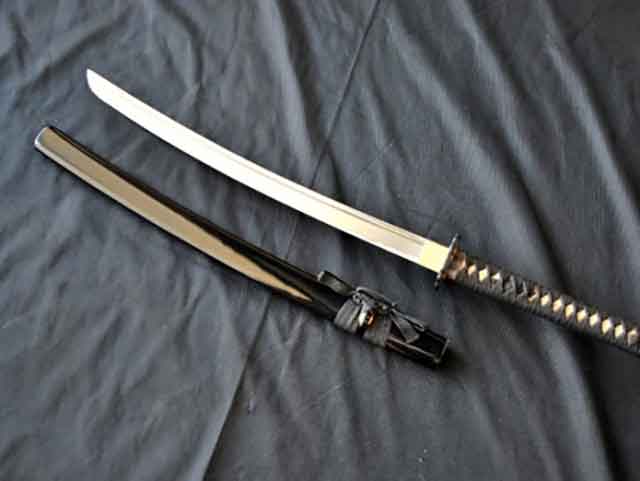
How did Wakizashi come about
The wakizashi, also known as the companion sword, is a traditional Japanese short sword that was widely used by the samurai warriors during the feudal era in Japan. This versatile sword has a long and rich history, and has played an important role in Japanese culture and warfare for centuries.

